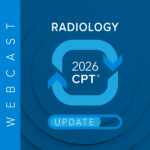The U.S. Court of Appeals for the Sixth Circuit has handed the False Claims Act (FCA) bar another lesson in humility – and perhaps prompted a quiet sigh of relief for healthcare providers – by reaffirming that not every regulatory misstep or billing nuance amounts to fraud. In United States ex rel. O’Laughlin v. Radiation Therapy Services, P.S.C., the Court rejected a relator’s ambitious attempt to stretch the FCA into a catch-all compliance statute.
At issue was the Medicare “incident-to” billing rule, a bureaucratic phrase with deceptively large implications. Under this rule, services performed by non-physician practitioners (NPPs) can be billed under a supervising physician’s number if certain conditions are met –chief among them that the physician provides direct supervision.
“Direct,” however, is a term only a regulator could love: it means the physician must be immediately available, though not necessarily in the same room. The relator, a former employee of a radiation therapy center, claimed the company violated the FCA by billing incident-to services when the supervising physician wasn’t physically present.
In her view, that made every claim a false one. The Sixth Circuit disagreed, refusing to convert a regulatory dispute into a federal fraud case.
The Court’s Take: Context Matters
The Court recognized that Medicare rules are confusing even for the most seasoned compliance teams. The company had relied on a reasonable, if not perfect, interpretation of “direct supervision.” More importantly, the relator couldn’t show that the alleged noncompliance was material to the government’s decision to pay the claims.
This is where the Court flexed its Escobar muscles. Since Universal Health Services v. United States ex rel. Escobar, the FCA’s “implied certification” theory has required proof that a misrepresentation was material – that is, capable of influencing the government’s payment decision. The Sixth Circuit found no such showing here. The Centers for Medicare & Medicaid Services (CMS) had continued to pay claims even after learning of the alleged supervision lapses. In the Court’s words, when the government pays anyway, that’s a strong clue the requirement wasn’t material.
Not Every Slip Is a False Claim
The opinion reinforces a trend among appellate courts: FCA liability doesn’t arise from mere negligence, confusion, or a compliance disagreement. The statute punishes fraud, not imperfect billing judgment. The Court emphasized that the FCA “is not an all-purpose antifraud statute,” nor a tool for policing regulatory gray areas.
The relator’s implied certification argument also fell flat. She claimed that by submitting claims, the company implicitly certified full compliance with Medicare supervision rules. The Court, citing Escobar, rejected this broad view, noting that implied certification applies only when a misrepresentation of compliance is both specific and material to payment. The relator’s case, it said, “failed both tests.”
Why This Matters for Healthcare Providers
For providers and compliance officers, this case is a reassuring reminder that the FCA should not (and likely will not) be used as a cudgel for every disputed interpretation of Medicare policy. As long as providers act in good faith, document their reasoning, and engage in reasonable regulatory interpretation, courts are increasingly reluctant to equate those gray areas with fraud.
That doesn’t mean anyone should grow complacent. The decision also underscores the value of a robust compliance program: one that tracks CMS guidance, educates staff on supervision rules, and maintains records of supervisory presence and delegation. After all, even if the FCA claims fail, reputational damage and defense costs can still take a toll.
The Bottom Line
In O’Laughlin, the Sixth Circuit brought welcome clarity: “incident-to” billing errors, absent evidence of knowing fraud or material falsehoods, do not make a False Claims Act case. The ruling tightens the leash on creative relators and reminds providers that the FCA remains a fraud statute, not a strict liability trap.
For now, compliance teams can exhale – at least until CMS rewrites “incident-to” again.













